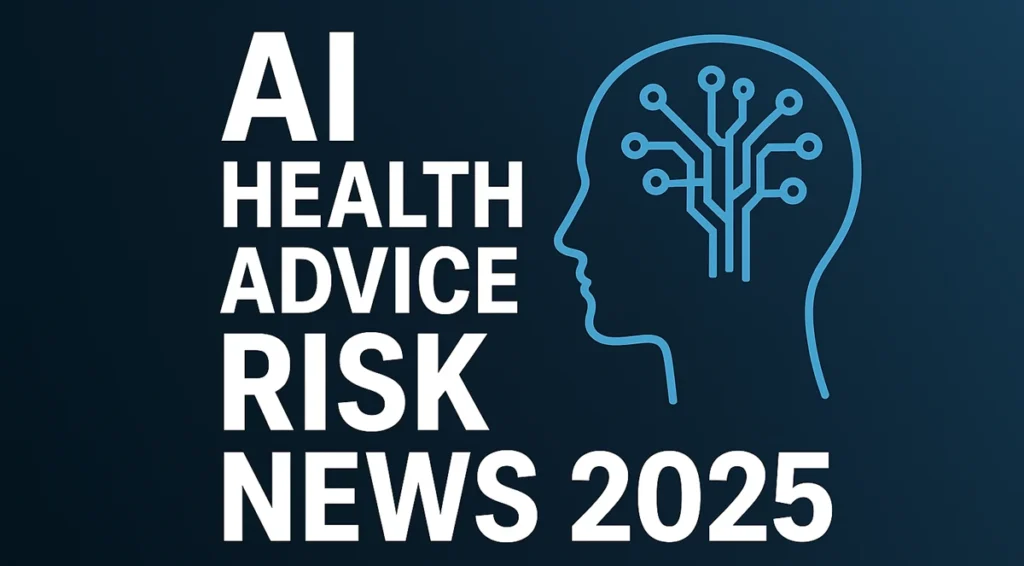Rare Health Issue from ChatGPT Advice
A rare case of bromism—severe toxicity after ChatGPT wrongly recommended sodium bromide as a salt substitute—illustrates the dangers and critical limits of AI in medicine. AI and chatbots must never replace professional clinical diagnosis or human expertise.

Why is it in News?
A recent case reported in a prominent American medical journal has highlighted the risks of relying on AI-generated health advice. A 60-year-old individual asked ChatGPT for dietary suggestions to replace table salt. Misguided by the chatbot, he replaced sodium chloride (common salt) with sodium bromide, subsequently developing bromism—a rare and potentially dangerous toxicity. This incident demonstrates the critical limitations and risks involved when individuals depend exclusively on AI for medical guidance.
Purpose and Significance
The main significance of this case lies in its warning against blindly following AI-based health advice. As digital solutions become more accessible, many people increasingly turn to chatbots and online platforms for health information—even for serious issues.
However, medical diagnosis and treatment require a nuanced understanding of patient history, physical examinations, and deep expertise—something that AI tools lack. This case underscores that AI should not be seen as a substitute for professional medical advice.
It also signals to policymakers and AI developers that health-related applications must incorporate robust safety measures, clear disclaimers, and responsible design to prevent harmful outcomes.
Important Information
- Bromism is a rare and harmful condition resulting from excessive intake of bromide compounds. Symptoms include mental confusion, skin eruptions, neurological disturbances, and digestive problems.
- Sodium bromide was historically used as a sedative but is now withdrawn from medical use due to its adverse effects.
- Instead of suggesting safer alternatives like potassium chloride or herbal salts, ChatGPT recommended sodium bromide—a serious chemical oversight.
- The patient required hospitalization and specialized care for detoxification and recovery. Doctors administered intravenous fluids and diuretics to eliminate bromide from the body.
- This case reveals basic deficiencies in the medical and chemical knowledge base of current AI systems. AI tools, trained on large datasets, can sometimes offer incorrect or outdated recommendations.
Fact Table
| Aspect | Details |
|---|---|
| Patient Age | 60 years |
| AI Used | ChatGPT |
| Faulty Recommendation | Sodium bromide as a salt substitute |
| Resulting Condition | Bromism |
| Publication | Leading American medical journal |
| Key Symptoms | Confusion, skin issues, neurological effects |
| Treatment | Hospital care, fluids, diuretics |
| Safe Alternatives | Potassium chloride, herbal salts |
Conclusion
This incident starkly illustrates the dangers of over-reliance on AI for health decisions. AI-powered tools are making rapid advances, but their role in healthcare must remain cautious and supervised. No algorithm can replace the skill, training, or judgement of a qualified healthcare professional.
Developers must integrate better safeguards, warnings, and regulatory checks into AI health applications. Users must be educated that AI advice is never a substitute for personal care from licensed physicians. Human health is too complex for automated systems to navigate alone.
The lesson from this case is clear: technological convenience must never come at the cost of safety and expert oversight in medicine.
Key Facts
- Case reported in leading medical journal: ChatGPT suggested sodium bromide, causing bromism
- Bromism: confusions, skin issues, neurological effects; requires hospital care
- Safer alternatives should have been potassium chloride or herbal salts
- Incident exposes critical knowledge gaps and liabilities in medical AI
- Absolute need for human oversight and licensed physician review in health decisions
- Developers must strengthen safety, disclaimers, and data validation in AI tools
- AI’s role: Support doctors, not replace them—especially for rare/complex issues
UPSC Practice Questions
- Assess the ethical challenges and limitations of Artificial Intelligence in healthcare. Illustrate your arguments with examples.
- Examine regulatory approaches to safeguarding consumers in the age of digital health advice.
- Discuss the growth of telemedicine and AI-driven healthcare solutions in India—their opportunities and challenges.
- Propose strategies to strike a balance between medical innovation and patient safety in the context of AI.
